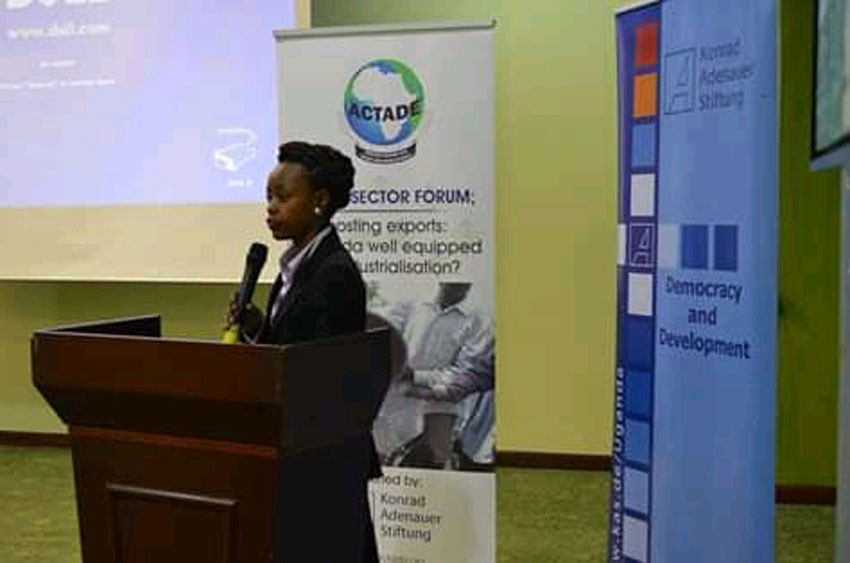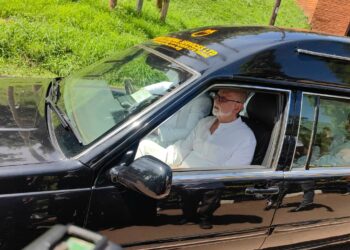The African Centre for Trade and Development (ACTADE), has appreciated government’s efforts in ensuring that pupils continue learning during lockdown occasioned by the coronavirus (COVID19) pandemic.
As one of the measures to control the spread of the pandemic in Uganda, government on March 18, 2020 suspended among others all school operations.
On 3rd April 2020, the Ministry of Education and Sports issued the COVID-19 preparedness and response plan, which, among other things, guided the continuity of learning through various means, that is, digital, TV, Radios, and self-learning materials. The self-learning materials were intended to keep learners busy and engage their ability, skills and knowledge while at home.
Now, ACTADE, working with 363 community civic educators, closely monitored the distribution of the printed study materials in selected sub counties, in 8 districts located in central Uganda including Bukomansimbi, Kalungu, Butambala, Gomba. Mityana, Mubende, Kyankwanzi and Kiboga districts.
According to ACTADE’ss Executive Director Susan Nanduddu, government has managed to successfully distribute study materials to various parts of the country to enable students continue learning despite the current lockdown.
Nanduddu also commended UNICEF for the support they gave to the Ministry of Education with additional funding to distribute printed materials to 48 districts of Uganda.
“The distribution of these materials, commenced on 15th June 2020. We applaud this support as it addresses some of the gaps associated with the distribution of materials, thus contributing to leaving no child behind. A lot more support is needed, countrywide.” She noted
She however highlighted a few bottlenecks that hindered the success the material distribution of which she commended government for urgent attention.
Learners’ registration exercise;
The proposal for registration of learners through the LC1 (village) system, was ideal for taking care of the swelling numbers in the villages. Our civic educators reported increased numbers of learners in the villages, particularly because parents in urban centres sent their children back to the villages. Some households reported numbers increasing from 5 members to 20, during the lockdown. However, the registration exercise was not accorded the resources required. Only one day was allocated to the L.C.1 Chairpersons to move door to door and record learners from primary to secondary level. They were not given any allowance for this exercise. As a result, not all learners were captured. Worse still, the distribution of the materials was not informed by this exercise. In majority of the villages, Chairpersons reported receiving under 10 copies, with the majority receiving only one copy per subject, for a few classes but not all.
Dissemination of materials from Sub County to LC1 level
Once the district task forces received materials, they distributed them to sub county levels. Without fuel support, the sub county taskforces in turn invited the LC1 Chairpersons to pick the materials from the sub county headquarters. It is reported that there were no distribution guidelines issued.
We learned that the distances between the areas of residence for the LC1 Chairpersons and the sub county headquarters were particularly long for some, (sometimes up to 30 kilometers). This came in at a time when no taxi was allowed to operate and no bodabodas were allowed to carry passengers. As a result, some Chairpersons never picked materials for their villages. Additionally, there was no documentation of who picked materials.
Responsibility among parents to pick the learning materials.
ACTADE would like to appreciate the parents that have been vigilant in supporting their children to access the learning materials and encouraging them to utilize them. In places such as Byerima Sub County in Kyankwanzi district, some parents asked nearby teachers to support their children to learn better. It is unfortunate to note that such vigilance is hard to come by. Most parents are not interested and have used the lockdown period for the children to help out in the gardens and with house chores.
Photocopying materials.
On 12th May 2020, the Ministry of Education and Sports issued a circular directing that parents should not be subjected to paying for photocopies of the free learning materials. Some District Task Forces relayed this information to the distribution teams. However, the practice generally has been that materials were photocopied in a variety of ways. Some Chairpersons made photocopies in the urban area and made them available to parents at a fee. Some provided the single copy to each parent to photocopy and return. In a few cases, some parents did not return the copies. Photocopy, generally, is difficult in rural areas because the services are difficult to find, especially during the lockdown. It is also expensive, with a page costing at least shs500, yet each booklet has multiple pages. In Lwamata Sub County, it was reported that one LC1 Chairperson demanded for Shs5000 per booklet, in addition to requiring the parents to photocopy the materials.
It is difficult for a parent faced with a choice to buy salt or food, to prioritize photocopying. This situation came at a time when the communities are cash poor due to the lock down. Many reported very low prices for their agricultural produce, and no business for bodabodas – the most significant sources of income in these areas. With the assumption that all learners would receive materials for free, most parents are not willing to contribute to the exercise, and rightly so. The result has been for the L.C 1 Chairpersons photocopying the materials, to be considered deceitful and thieves.
Ability to comprehend the content by learners
Generally the feedback received is that the materials distributed were good for urban areas because they are very difficult for the rural learners to comprehend. Unfortunately the parents cannot assist them, nor do they have access to teachers to guidance. As a result, some learners who received the materials have not utilized them for the purpose.
Communication gaps
Overall, there are mixed messages within rural areas about when, where, and how many learning materials learners should receive.
It is from these bottlenecks that Nanduddu recommended the following tools so as to make the system work out properly;
According to her,Should a second phase of distributing learning materials be possible, government should be sure of the total number of learners per village. It is therefore important for the registration exercise to be completed by the LC1s. The recorded numbers should guide the distribution criteria. In addition, distribution of materials should be completed by either delivering the materials to the LC.1 Chairpersons, or facilitating them with fuel to pick the materials from the Sub County headquarters.
She also recommended that government teachers who are continuing to receive a salary, should contribute to supporting learners within their localities with comprehension of the materials, while adhering to the COVID-19 guidelines issued by the Ministry of Health .
Ministry officials should sensitize the community through radio and the LC systems, to support their children to learn during the lockdown. Government, needs to do more to ensure that all parents and guardians make it a requirement for the learners to continue learning during this period. Otherwise, it is envisioned that some learners will drop out of school, just because of loss of interest and unwanted pregnancies .
Volunteers within the community that are already known, should be allowed to assist the L.C 1 Chairpersons to distribute materials, taking into consideration the COVID-19 prevention measures. Additionally, they can be utilized to communicate authentic information about the exercise with relevant stakeholders within the communities.
About ACTADE
African Centre for Trade and Development (ACTADE) is a Non-Governmental Organisation fully registered with the National NGO Bureau. ACTADE works with the Democratic Governance Facility (DGF), to increase awareness of Human Rights, and to support the people to actively engage in public decision making, for improved service delivery; especially in the education, health and agriculture services.
Do you have a story in your community or an opinion to share with us: Email us at editorial@watchdoguganda.com












